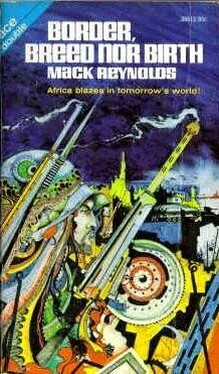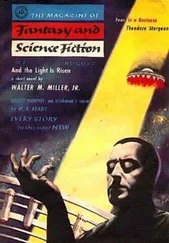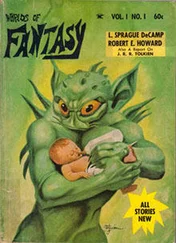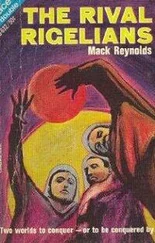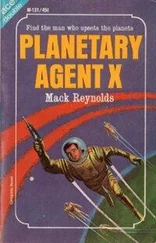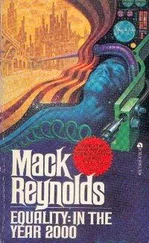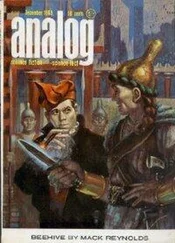Bey said, “Homer’s right. Our only tactics are guerrilla ones.”
Homer Crawford looked at Guémama, who had been standing in the background, unfamiliar with the language these others spoke, but holding his dignity. Crawford said, diplomatically, “And what sayest thou, O chieftain of the Tuareg?”
Guémama was gratified at the attention. He said in Tamaheq, “As all men know, O El Hassan, we now outnumber by thrice the Arab giaours, may they burn in Gehennum. Therefore, let us rush in and kill them all.”
Bey shuddered.
Homer Crawford nodded seriously. “Ai, Guémama, that would be the valorous way of the Tuareg. But the heart of El Hassan forbids him to sacrifice the lives of his people. Consequently, we shall use the tactics of the desert jackal. Instruct those of your people who are most cunning to infiltrate Tamanrasset in the night. Let them not carry arms for they may well be searched by the Arab meleccha.”
The Tuareg chieftain was intrigued. “And what shall they do in Tamanrasset, El Hassan? Suddenly seize arms, one night, and rise up in wrath against the Arab dogs and kill them all?”
Homer was shaking his head. “They will address themselves to the Haratin serfs and spread to them the message of El Hassan. They will be told that in the world of El Hassan each man shall be free to seek his own destiny to the extent his mind and abilities allow. And no man shall be the less because he was born a serf, and no man the more because he was born to wealth or power in the old days.”
“Aiii,” Guémama all but moaned. “But such a message …”
“Is the message of El Hassan, as all men know,” Homer Crawford said flatly. He turned to Kenny Ballalou. “Kenny, take over this angle. We want as many propagandists in that town as possible. It’s already choked with refugees, most of them not knowing what they’re fleeing. We might get recruits there, too. But mostly we want to appeal to the sedentary natives in town. They’ve got to get the dreams, too. Promise them schools, land… I don’t have to tell you.”
“Right,” Kenny said.
Isobel said, “Maybe I ought to get in on this, too. The women might do a better job than men on this slant. It’s going to take a lot to get a Tuareg bedouin to sink to talking to a Haratin on an equal basis.”
Bey and Homer had bent back over the maps, but before they could get back into the details of guerrilla warfare against Colonel Ibrahim and his legionnaires, they were halted by a controversy from without.
“What now?” Homer growled. “This camp is getting to be like a three-ring circus.”
The entrance flap was pushed aside and three of Bey’s Sudanese tribesmen half escorted, half pushed a newcomer front and center.
It was Fredric Ostrander, natty as usual, but now in khaki desert wear. He was obviously in a rage at the three rifle-carrying nomads who had him in charge.
Bey spoke to the Teda warriors in their own tongue. Then to Homer in Tamaheq, which he assumed the C.I.A. man didn’t know: “They picked him up in the desert in a hover-jeep. He was evidently looking for our camp.” He dismissed the three bedouin with a gesture.
Ostrander was outraged. He snapped at Homer Crawford, “I demand an explanation of this cavalier attack upon…”
His face expressionless, Homer held up a hand to quiet the smaller man. He looked at Jack Peters and raised his eyebrows. “ Kion li la fremdul diras?”
Jack, serious as ever, replied in Esperanto, then turned to the American C.I.A. man and said, “El Hassan has requested that I translate for him. He speaks only the official language of North Africa to foreign representatives. Undoubtedly, sir, you have proper credentials?”
Had Fredric Ostrander been of lighter complexion, his color would have undoubtedly gone dark red.
“Look here, Crawford,” he snapped. “I’m in no mood for nonsense. The State Department has sent me to your headquarters to make another attempt to bring some sense home to you. As an American citizen, owing alliance…”
Homer Crawford spoke in Esperanto to Jack Peters who nodded seriously and said to Ostrander, “El Hassan informs you he owes alliance only to the people of North Africa whose chosen leader he is.”
Ostrander knew they were kidding him, but at the same time the stand being taken was actuality. He glared at the Americans present whom he knew, Bey, Isobel, Cliff, and Kenny. He snapped, “Very well, but I repeat what I told you when last we met. The State Department of the United States of the Americas will not stand idly by and see this area taken over by elements dominated by red subversives.”
“Holy mackerel,” Cliff growled, “are you still tooting that horn?”
Dave Moroka said sarcastically, “It’s an old wheeze. The definition of a red subversive is anybody who doesn’t see eye-to-eye with the United States. They’ve been pulling the gag for decades. Remember Guatemala and Cuba? Do anything that interferes with American business abroad and the cry goes up, he’s an enemy of the free world!”
Ostrander spun on him, his eyes narrowing.
Dave laughed. “The definition of members of the free world, of course, being anybody who follows the American line. Anybody is free, Spanish and Portuguese dictators, absolute monarchs in Arabia, Chinese warlords, if they’re on the American side.”
Ostrander snapped, “I don’t believe we’ve met.”
Moroka made a sweeping bow. “I’m afraid we don’t move in the same circles. I’ve spent possibly a third of my life in prison…”
“Undoubtedly,” Ostrander snorted.
“…put there by people such as yourself—in various countries—because I was fighting for my own version of freedom.”
“Communism, undoubtedly!”
Moroka said softly, “I’m a South African, sir. Both my parents were killed in the 1960 riots. It seems that they had dark skins—even as you and I—and weren’t able to see why that should keep them from freedom.”
Fredric Ostrander spun back to Homer Crawford. “I’m not here to quibble with self-confessed malcontents. I’ve been sent to represent the State Department, to report to them, and, above all, to do what I can to prevent your activities from redounding to the further advantage of the Soviet Complex. I assume you can assign me quarters.”
Straight-faced, Jack Peters translated this into Esperanto, and, straight-faced, Homer answered in the same language.
Jack turned back to the impatient C.I.A. man. “El Hassan welcomes the representative of the United States of the Americas and hopes this will be the first step toward diplomatic recognition between North Africa and your great country. He has instructed me to find you quarters, which, possibly you may have to share with delegations from Common Europe or”—Peters cleared his throat—“the Soviet Complex. He further suggests that it might be well, if you maintain communications with your superiors, to have sent to you books on Esperanto, the official language of North Africa.”
Dave Moroka put in, “By the way, we’ll have to go through your things. We can’t allow any radio communication from El Hassan’s camp, except through official El Hassan channels—for obvious military reasons.”
Ostrander snorted, stared indignantly at Homer again, spun on his heel and stalked from the tent. Jack Peters followed him but not before tipping an uncharacteristic wink at Homer.
When they were gone, Homer sighed and looked at Dave Moroka. “That reminds me, how are our other delegations coming?”
The South African grinned ruefully. “They’re playing it cool. Waiting to see what way to jump. Give El Hassan some real success, and they’ll probably jump at the chance to be first to recognize him. Especially these Soviet Complex opportunists. They’d just love to suck you into their camp.”
Читать дальше
